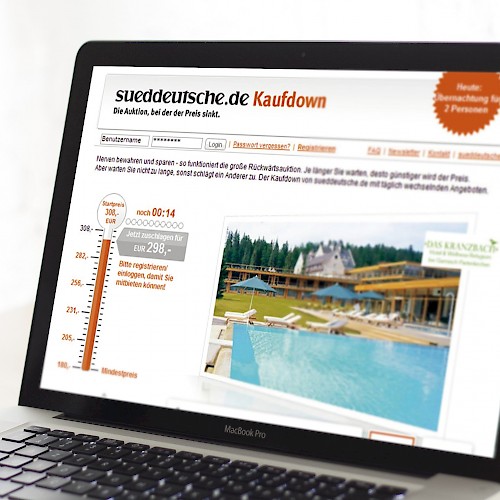
Süddeutsche Zeitung - Development of auction platform Kaufdown
 Open navigation
Open navigation 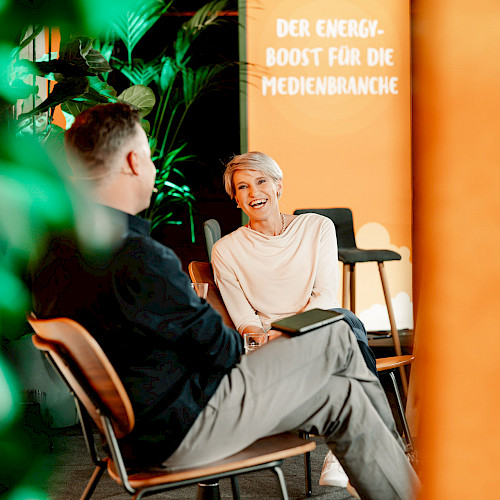
Moving things forward together, joining forces and unleashing new potential. The second [stei tu:nd] media conference impressively demonstrated on November 18, 2021 what media companies can achieve with a culture based on partnership and how they are preparing for 2022.
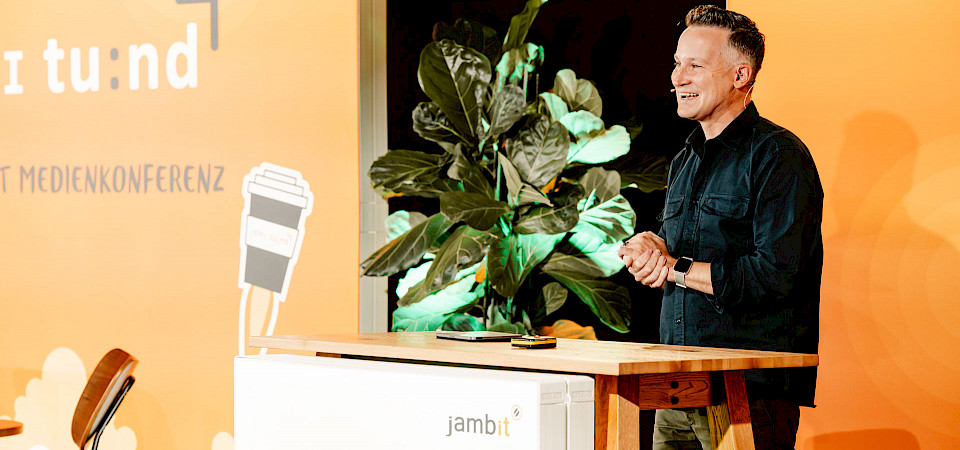
At the start of the conference, Peter Fellinger, CEO and founder of jambit GmbH, and Franz Haßlberger, Head of Business Division Media, welcomed approx. 300 participants. They opened the conference with questions on successful collaboration, setting collaboration as the content roadmap for the rest of the day. How has the pandemic changed our work? How do we accept learnings and establish an open and positive culture for managers and other employees? How do software developers as well as media companies manage these new challenges?
With this keynote, moderator Richard Gutjahr addressed the issue on a business level and brought it to a national context with 5 theses about digitization in Germany. Politicians have underestimated the importance of digitization, for example. Working from home would become more important especially for high-income and well-educated employees. Domains of different kinds influence each other: this is also visible at the development of automotive manufacturers, which count on new media experiences. Germany, the second oldest country in the world after Japan, would have to find answers in this decisive decade.
Tassilo Raesig from the streaming service Joyn was the first panel's kickoff in "Product & Content". He introduced the digital platform and showed how Joyn is standing up international competition. The joint venture of ProSiebenSat1 and Discovery tries to fill the gap between Youtube and classic TV and counts on young talents and brave ideas. "We want to be the address for the best material," said Raesig. The target groups should especially be convinced with high-quality content. Joyn should offer users an added value, which they don’t have while watching classic digital TV. The streaming service uses this smartly through increasing the digital range from TV to smartphone.
Jobst Benthues & Julien Nissenbaum from Redseven Entertainment presented innovative entertainment formats. Products that offer a real campfire feeling are in demand. For example, roadshows with new interaction possibilities and new ways to bring a concert directly in your cozy living room.
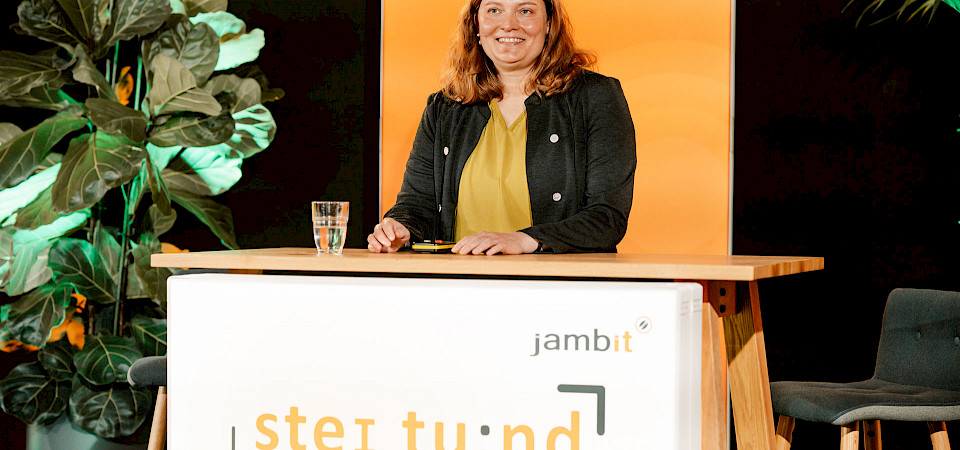
"We want to move and entertain people and in no way exclude them," said Carmen Heger from Süddeutsche Zeitung Digitale Medien GmbH. In her talk, she showed how language technologies support not only journalism but also inclusion. Natural Language Processing (NPL) got more and more important in the last years, especially since deep neuronal networks highly improved automatic recognition and generating language. Thanks to Open Source and free available models, the access to those technologies is easier and don’t always have to be bought or developed by experts. Data journalism and data engineering at Süddeutsche Zeitung work hand in hand there. Human know-how is still needed, even if "automated journalism" already works with well-structured data. You can find these e.g., in context with stock exchange, weather and sports topics. For example, her team is currently working on prototype databases that will make unused knowledge findable and usable for editorial work. The service makes it possible to filter out knowledge via questions posed to the system instead of via curation.
In addition to the stage, there was also a lively digital discussion in the live chat, moderated by jambitee Robert Kowalski. The audience was interested in the question of how journalism and data engineering work together. Carmen Heger empathized the topics of coaching and knowledge transfer here. The main thing is to gain the ability to evaluate the newly developed systems. Journalist colleagues must be introduced slowly and also coached in this area. In addition to the livestreams, guests were also able to experience exciting video-on-demand presentations, such as those by Daphne Flieger from ZDF Digitale Medienproduktion GmbH. She inspired participants with her talk "CM back stronger – how we are reclaiming the comment columns".
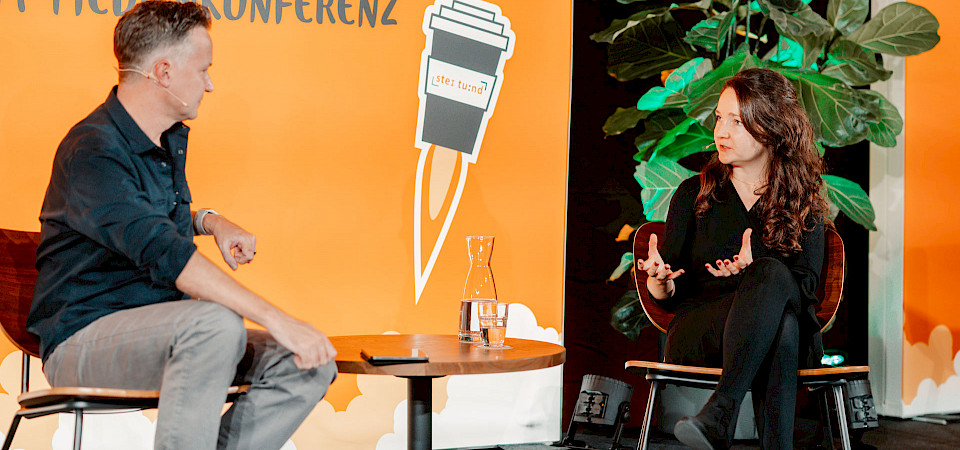
The second panel, "Sales and Subscription", was devoted to changing revenue models in media companies. Janina Reimann and Vera Nysetvold from Handelsblatt Media Group presented the media company's digital event strategy. From one day to the next, they would have had to rethink the pandemic in the event business of the renowned publishing house. Based on comprehensive surveys, they developed a strategy to bring journalism to life with events. For this purpose, in-house experts were trained within a very short time and a live studio was set up to secure the digital event business. With great success, which is reflected in the registration for new publishing products and unleashes potential for customer loyalty and new customer acquisition.
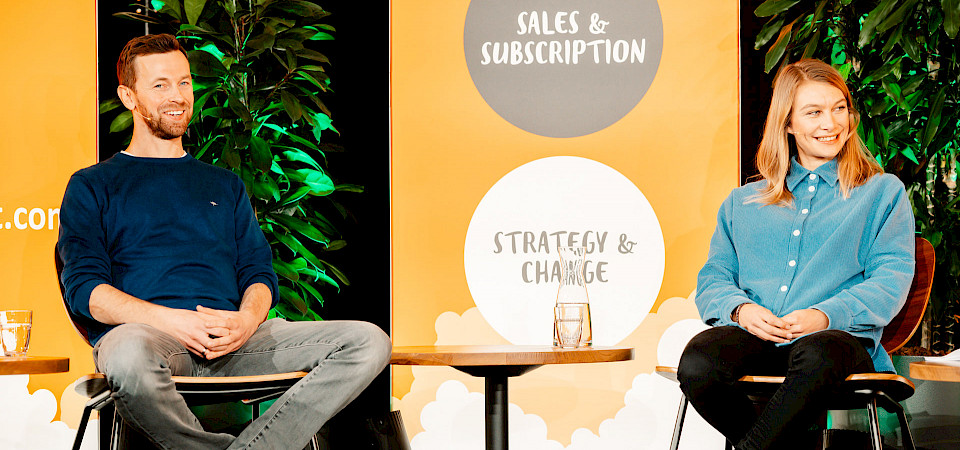
Madeleine Bublies, Head of Product at MHS Digital, showed how important an effective yet cautious change process is for a diversified media company. Not only organizationally, but also in terms of software architecture: 15 newspapers are part of the media company's complex IT architecture. Bublies relies on interdisciplinary teams and change management to acquire new customers. The company does not just model the sales funnel as an idea on paper, but also organizationally. When it comes to cooperation between product management and editorial staff, he says, it is important not to "invade Gaul like the Romans," but rather to lend a helping hand to the specialist departments. Although mechanisms and marketing strategies from e-commerce can be transferred to the editorial business, it is ultimately the content that counts. For example, a topic has reach and pay aspects that have to be weighed against each other. In his presentation, Nico Wilfer, Chief Product Officer Frankfurter Allgemeine Zeitung, impressively showed how F.A.Z. converts reach into leads and subscriptions and what role technology plays in this. In this way, F.A.Z. wants to reach its readership where they are on the move, and digitally at that. For some time now, the media company's Product and Sales departments have been working toward the common goal of reaching around 300,000 digital subscriptions by 2025.
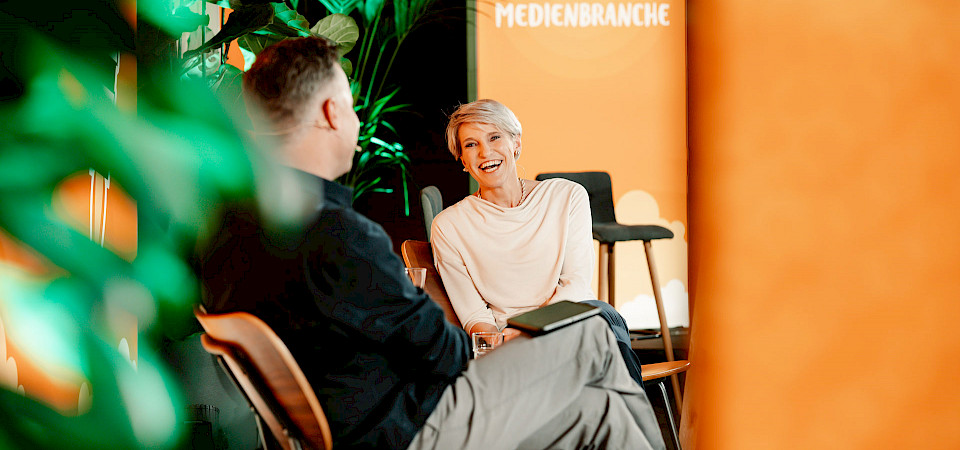
Susanne Aigner, Managing Director of Discovery GSA & BNLX, expresses great potential in consolidation for large media groups during her conversation with moderator Richard Gutjahr. Companies need to find partners to fully develop their unique selling points. Linear television and new digital products should be thought together. Christiane Mehling, Vice President Product RTL+, provided authentic insights into the team culture of the Cologne-based TV station. For her, the focus is on values such as commitment, transparency and common goals. Thomas Schultz-Homberg, CEO of Kölner Stadt-Anzeiger Medien, called for greater awareness of diversity and a shift in thinking from opinion-driven decisions to data-driven decisions.
The event was rounded off by a coffee table, wherboth CEOs and founders, Markus Hartinger and Peter Fellinger, served all participants on-site the characteristic jambit coffee. Media companies that are now doing well in the pandemic did their homework a long time ago, said Susanne Aigner: "It works so well now because we built up workflows and processes beforehand that also work well remotely. We are now drawing on this treasure." Marion von Nell, VP Business & People Strategy at Joyn, called for organization-developing departments like HR to leave the "ivory tower" and get close to operations. For her, core competencies of ideal employees are: "Cool head, warm heart, working hands". Susanne Aigner and Nico Wilfer emphasized that skills such as general cleverness, a service mindset, quick comprehension, and communication are much more important than classic training or university degrees.
At the end of the day, all participants looked optimistically to the future and back to a successful second #steitundKonferenz, which celebrated its premiere last year.

Contact us now